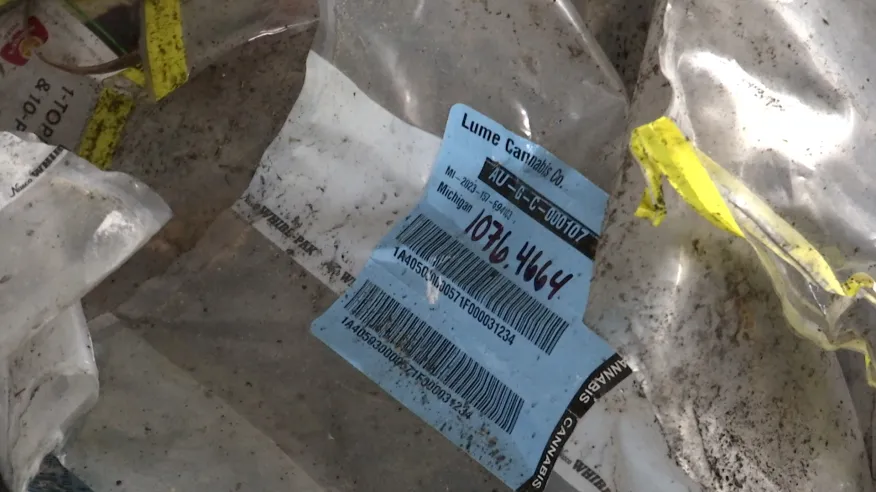Probation and Sentencing Law Changes in Michigan (2021)
Recently, Michigan implemented significant reforms in their criminal justice system, impacting both misdemeanor and felony sentencing as well as probation.
If you or someone you care about is currently on probation or has recently faced criminal charges, it is crucial to seek guidance from an experienced criminal defense attorney. Call our office (248) 357-2550
Rebuttable Presumption
Michigan law now provides a rebuttable presumption that someone convicted of a misdemeanor, other than a serious misdemeanor, must be sentenced to a fine, community service, or other nonjail or non-probation sentence.
A court may depart from this presumption if the court finds there are reasonable grounds for the departure and the court states on the record the grounds for that departure. In other words, the court is now prohibited by law from sentencing someone convicted of a non-serious misdemeanor to probation unless the court explains on the record at sentencing why it is sentencing that person to probation and that reason is considered “reasonable.”
A “serious misdemeanor” includes assault and battery, domestic violence, aggravated domestic violence, assault with serious injury, breaking and entering, illegal entry, child abuse (4th degree), contributing to neglect or delinquency of a minor, prohibited communication through the internet or computer, intentional firearm aiming without malice, discharge of a firearm intentionally aimed at a person, discharge of an intentionally aimed firearm resulting in injury, indecent exposure, stalking, worker injury in a work zone, leaving the scene of an accident, drunk or drugged driving (OWI or OWVI) involving property damage or physical injury/death to another individual (including while operating a watercraft or boat), and selling alcohol to someone under 21 years old.
The new law alters the sentencing period for individuals convicted of misdemeanors and felonies. In general, most felonies now carry a maximum probation term of 3 years, with the possibility of extensions up to 5 years. However, there are exceptions for felony stalking and certain sex offenses, which may still result in lifetime probation.
It is crucial that the conditions of probation are carefully tailored to address the assessed risks and needs of the probationer, as well as the needs of any victims involved. Courts are now obligated to specify the “rehabilitation goals” for each defendant during sentencing.
The conditions of probation must be customized to the individual, address their assessed risks and needs, aim to reduce recidivism, and address the harm caused to victims, their safety concerns, and any requests for protective measures or restitution. Courts also have the authority to make appropriate adjustments to the probation conditions, always considering the specific rehabilitation goals.
Early Discharge of Probation
If you have completed over half of your probation term and met all required programming without any violations in the past three months, you may be eligible for early discharge from probation.
You can notify the probation department or file a Motion for Early Discharge of Probation to request early discharge, and the court may consider it at its discretion. Inability to pay fines or fees does not make you ineligible for early discharge, but the court must consider any outstanding restitution and its impact on the victim.
The court will review your behavior on probation to determine if early discharge is warranted. They may grant early discharge without a hearing, but if they find that it is not warranted, they will conduct a hearing for you to present your case.
Certain crimes are not eligible for early discharge from probation. If your probation officer does not notify the court of your eligibility, contact a criminal defense attorney. Thorough preparation for your early discharge hearing is crucial, and an experienced attorney can guide you through the process.
The Court Should Not Impose a Jail Term or Place the Person on Probation
When sentencing an individual to a misdemeanor, there is a rebuttable presumption that the court should not impose a jail term or placed the person on probation. MCL 769.5(3).
Except “serious misdemeanors” as defined by MCL 780.811(1)(a).
A serious misdemeanor includes an original offense charged as a “crime” but pleaded down. MCL 780.811(1)(a)(xviii).
Crime is defined as a felony-incarceration greater than 1 year. MCL 789.752(1)(b).
Nonjail/Nonprobationary Sentence
Q: MCL 769.5(3) provides that “[t]here is a rebuttable presumption that the court shall sentence an individual convicted of a misdemeanor, other than a serious misdemeanor, 5 with a fine, community service, or other nonjail or nonprobation sentence.”
The statue was effective March 24, 2021. Is it retroactive?
A: MCL 769.5(3) does not expressly indicate that it is retroactive. Therefore, the court will need to determine whether this statute applies to offenses committed on or after March 24, 2021, or rather to those sentenced on or after March 24, 2021.
Q: What does a nonprobation sentence look like?
A: A nonprobation sentence is any lawful sentence that does not include an order of probation. As contemplated in MCL 769.5(3), this may include a fine, community service, other nonjail, etc. If the court orders a defendant to complete certain activities as part of a nonprobation sentence, the court should determine how it will monitor compliance.
More Posts

FAQs About Restoring Your Drivers License in Michigan
Frequently Asked Questions about Restoring Your Driver's License in MichiganHere's what you need to knowWhat are the steps to restore my driver's license in Michigan? The steps to restore your driver's license in Michigan vary depending on the reason your license was...

Involuntary Manslaughter Charges and Penalties in Michigan
Involuntary Manslaughter Charges and Penalties in MichiganHere's things you should to knowWhat is Involuntary Manslaughter in Michigan? Involuntary manslaughter differs from murder in that it lacks intent to kill. In Michigan, it is somewhat defined as the killing of...

Cannabis Tax Payments Being Distributed in Michigan
Adult-Use Marijuana Tax Payments Being Distributed In MichiganHere's what they say...Treasury: Adult-Use Marijuana Payments Being Distributed to Michigan Municipalities and Counties; More Than $59.5 Million Going to 224 Municipalities and Counties. Sales of "legal"...

The Expanding List of Crimes that Restrict Gun Ownership
The Expanding List of Crimes that Restrict Gun Ownership in MichiganHere are the LawsDomestic Violence The legislature passed a package of bills that add subsets to certain misdemeanor offenses (identified below) for offenses involving domestic relationships. See 2023...

Forensic Science Division – DNA Profiling System
The Michigan State Police Forensic Science Division (FSD) DNA Profiling System is a comprehensive program that uses DNA analysis to support criminal investigations throughout the state. The system is housed within the Biometrics and Identification Division (BID),...

Apparent cannabis testing bags in trash pile in Lansing
Michigan's marijuana laws mandate that both retail recreational and medical marijuana undergo comprehensive testing conducted by independent laboratories. The purpose of such testing is to identify and mitigate potential contaminants such as mold, mildew, and harmful...

Evidence in Michigan Courts: Proposed Amendments of MRE
The Michigan Rules of Evidence are the rules adopted by the Michigan Supreme Court to govern evidentiary processes throughout Michigan's judicial system. Occasionally, the Rules of Evidence require amendments or changes. You can access proposed and recently-adopted...

Evidence in Michigan Courts: Michigan’s Evidence Rules 1001-1008
Michigan's Rules of Evidence, established by the Supreme Court, dictate how evidence is presented and admitted in court proceedings. Rules 1001 through 1008, focusing on how written words, recordings, and photographs are treated as evidence.Rule 1001: Defining the...

Evidence in Michigan Courts: Rules 901-903 Authenticating Evidence
Michigan Rules 901-903 - Evidence Authentication Ever wondered how that document or recording made its way into a Michigan courtroom? The answer lies in Michigan Rules of Evidence 901 to 903, which govern the crucial step of authenticating evidence. This article...

Evidence in Michigan Courts: Rule 801-807 Hearsay Evidence
Michigan Rules of Evidence 801-807 Hearsay: In the courtroom, truth-finding is paramount. Yet, not every statement offered as evidence directly reveals the truth. Enter the realm of hearsay, statements made out of court, and the complex rules governing their...


